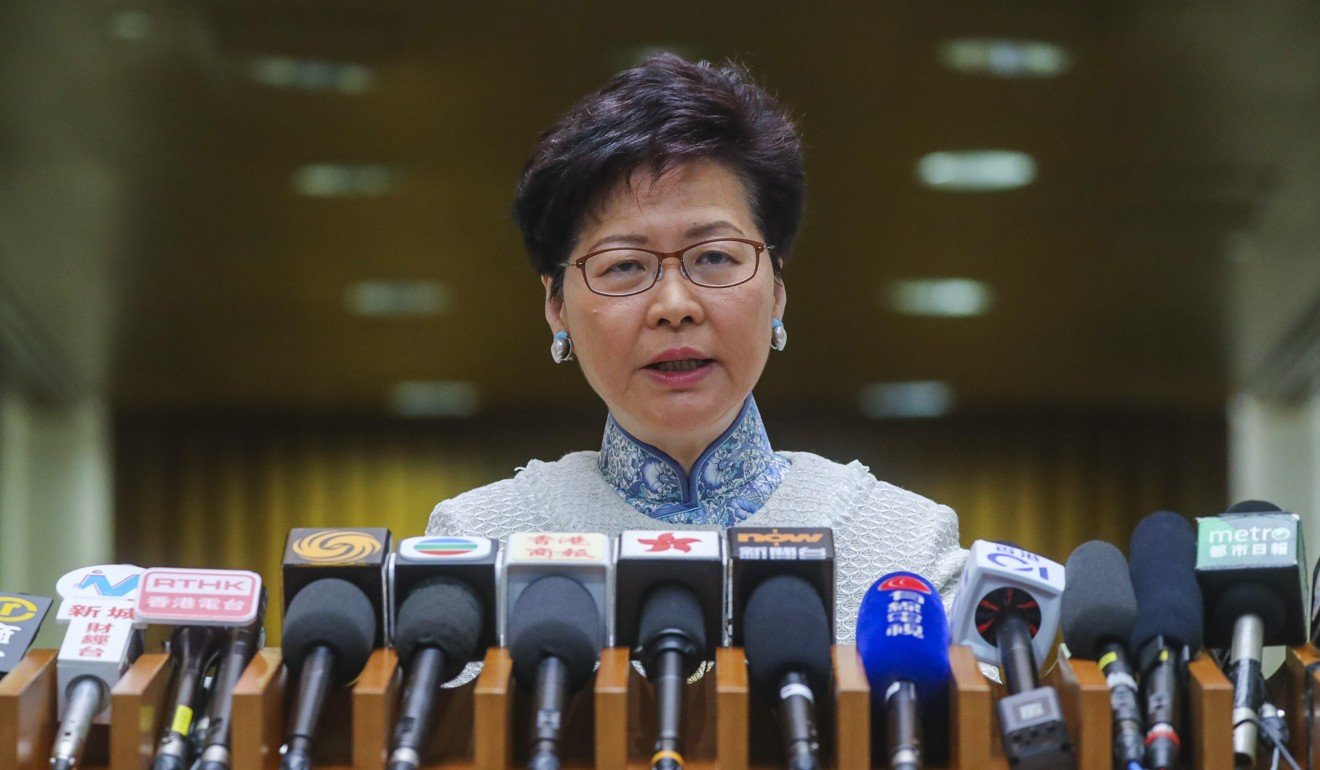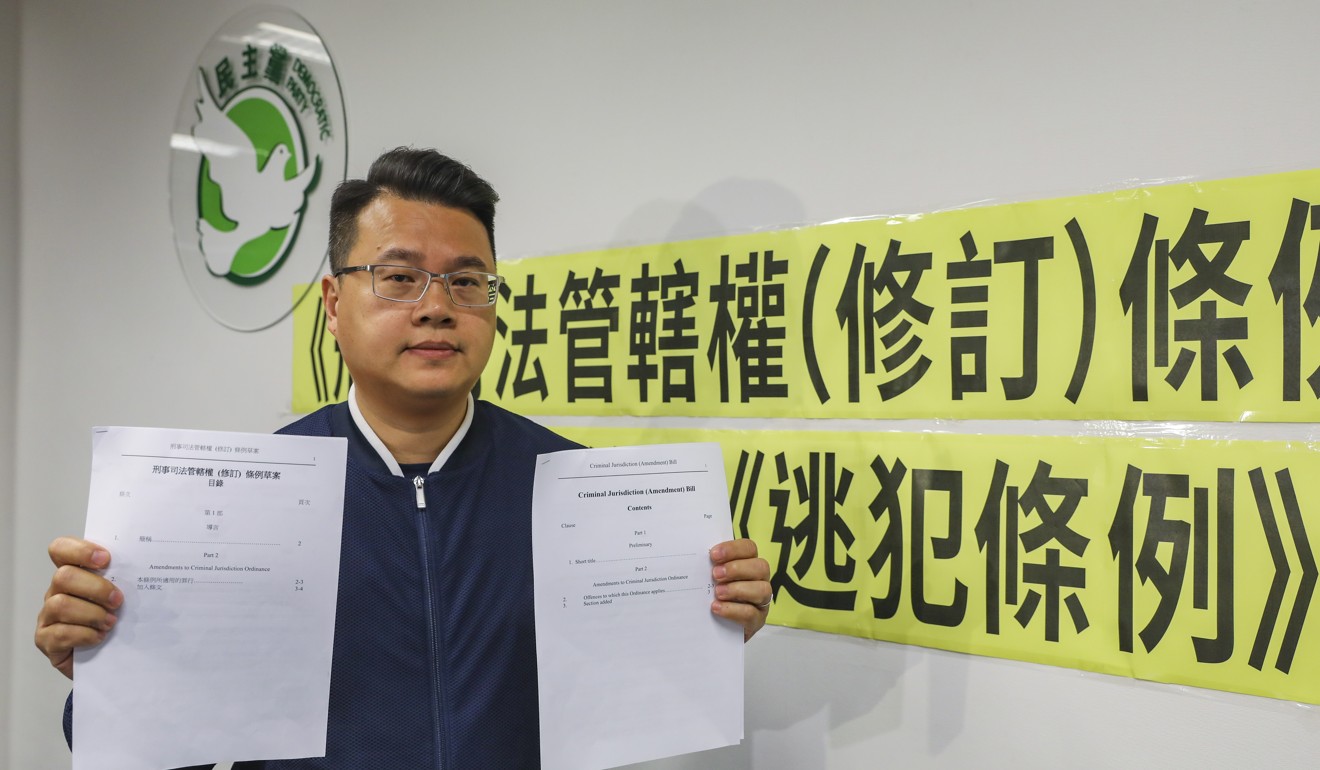
International Chamber of Commerce – Hong Kong calls on government to halt extradition bill, saying global companies might reconsider locating offices in the city
- Government urged to suspend bill until a proper public consultation is held
- Lee Jark-pui, ICCHK chairman, worries about city’s reputation as global business centre
A prominent business group has urged the government to abandon its controversial extradition bill, saying the amendments to the fugitive law would force businesses to reconsider if they should locate their regional offices in the city.
In a letter to lawmakers on Wednesday, the ICCHK complained that the government’s public consultation period was too short for an issue that so deeply affects life and work in the city.
In February, the Security Bureau allowed the public to submit feedback within 20 days after it presented the fugitive bill. The ICCHK is made up of leading companies and professionals as well as chambers of commerce and business groups.

The ICCHK does not reveal the total number of its members, but its aim is to promote the city’s business interests in the global community. The organisation’s chairman is Lee Jark-pui, a non-executive director of Hong Kong-listed Lippo Limited.
The International Chamber of Commerce, headquartered in Paris, was founded in 1919 and now has a global network of more than 6 million companies, chambers of commerce and business associations in more than 130 countries.
“Business and overseas investment are attracted to and stay in Hong Kong because they have confidence in its rule of law and an independent judiciary,” the chamber said in its letter to lawmakers.
US ‘may re-examine relationship with Hong Kong’ if extradition bill passed
“But the proposed changes will lead people to reconsider whether to choose Hong Kong as their base of operations or the regional headquarters because there is the risk of their being handed over to another jurisdiction that does not provide the protection they enjoy in Hong Kong.”
At present, suspects could be surrendered to one of the 20 countries with which Hong Kong has an extradition deal.
If passed, the extradition bill would allow the city to conduct the case-by-case transfer of suspects to places where it lacks an extradition deal, including Taiwan and mainland China.
[Chamber members] are worried about being transferred to a jurisdiction which could frame them with some arbitrary offences
The ICCHK said it was concerned that these 20 jurisdictions might seek to renegotiate their agreements with Hong Kong. “How would this impact Hong Kong as an international business centre?” the chamber said.
Lee said chamber members do not believe the government should proceed with the extradition bill.
“They are worried about being transferred to a jurisdiction which could frame them with some arbitrary offences,” he said.
According to Lee, the chamber called for the government to stop the legislative process of the bill until proper consultation was conducted.
Officials said the bill had to be passed at once so a high-profile murder suspect could be sent to Taiwan. Chan Tong-kai, 20, who is wanted in Taiwan for his girlfriend’s murder, was jailed for 29 months last week on related money-laundering charges but could be released as soon as October. Some observers have pointed out that if he is released before the bill is passed, he could flee Hong Kong and escape extradition.
But the ICCHK said the Chan case should be treated separately.
“Given the gross inadequacies of the proposed amendments, enactment of the bill would mean more people in Hong Kong would be at risk of losing freedom, property and even their lives in the future – than merely passing judgment on the convicted in the Taiwan case,” the chamber said.

A spokesman for the Hong Kong government said the proposed amendments were meant to protect the law-abiding general public in Hong Kong.
“The amendments, if passed, will protect business activities from the threat of crime and be conducive to the business environment in the Hong Kong special administrative region,” the spokesman said.
Extradition bill should strike fear in all who do business in China, despite exemptions
Democratic Party lawmaker Andrew Wan Shiu-kin, meanwhile, said he would move a vote of no confidence on Lam at the Legislative Council meeting on May 22.
“The main reason behind my decision is that Lam’s administration has been selling out Hongkongers, damaging ‘one country, two systems’ and creating the possibility that Hong Kong citizens could be sent to mainland China and face unfair trials there by pushing forward its proposed fugitive extradition arrangement,” Wan said on Wednesday.
“If foreign investors flee Hong Kong and it leads to a meltdown of the local property and stock markets, will Lam and her government take the responsibility? Will a resignation in that case be sufficient as an act of accountability?”

